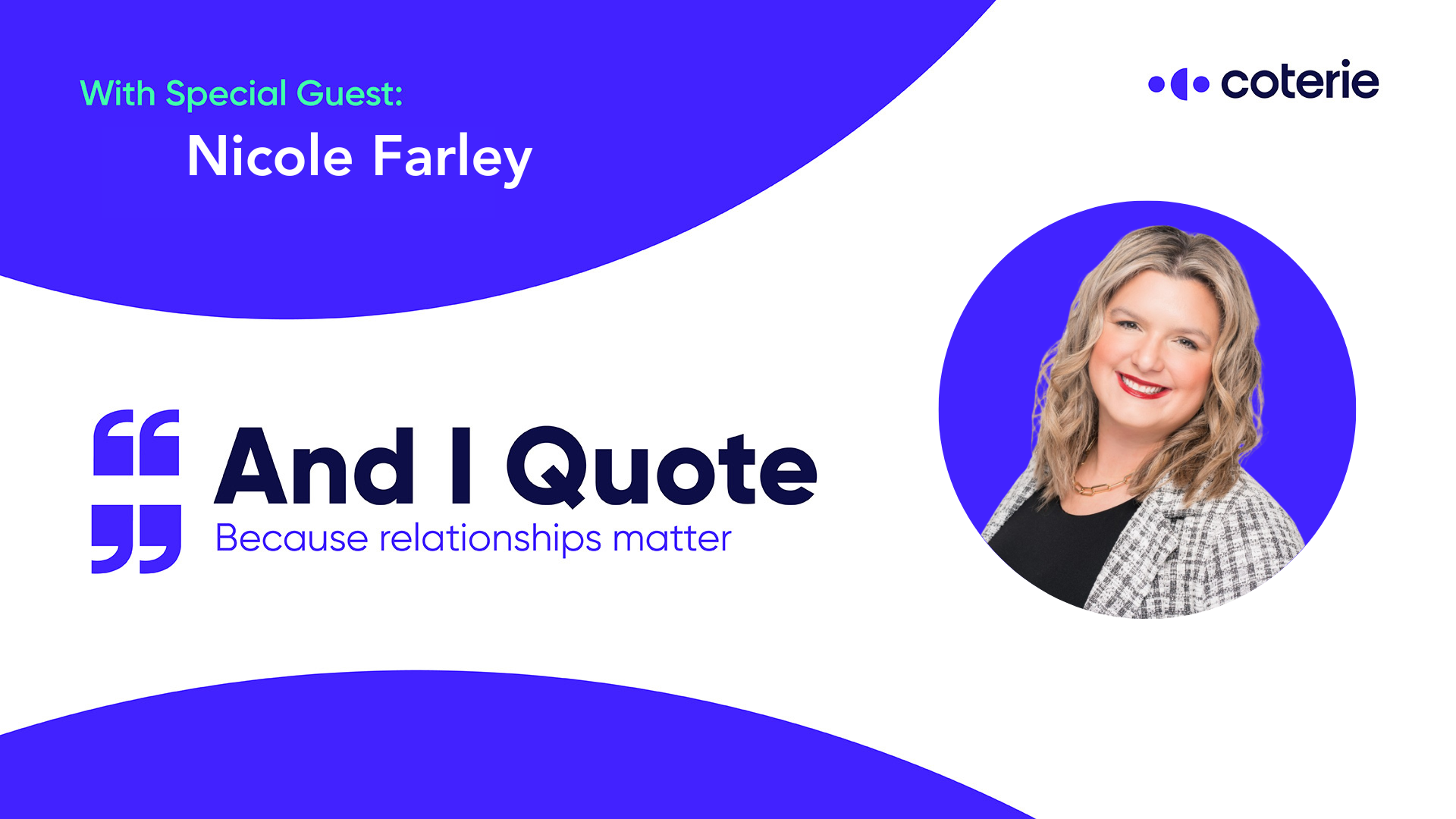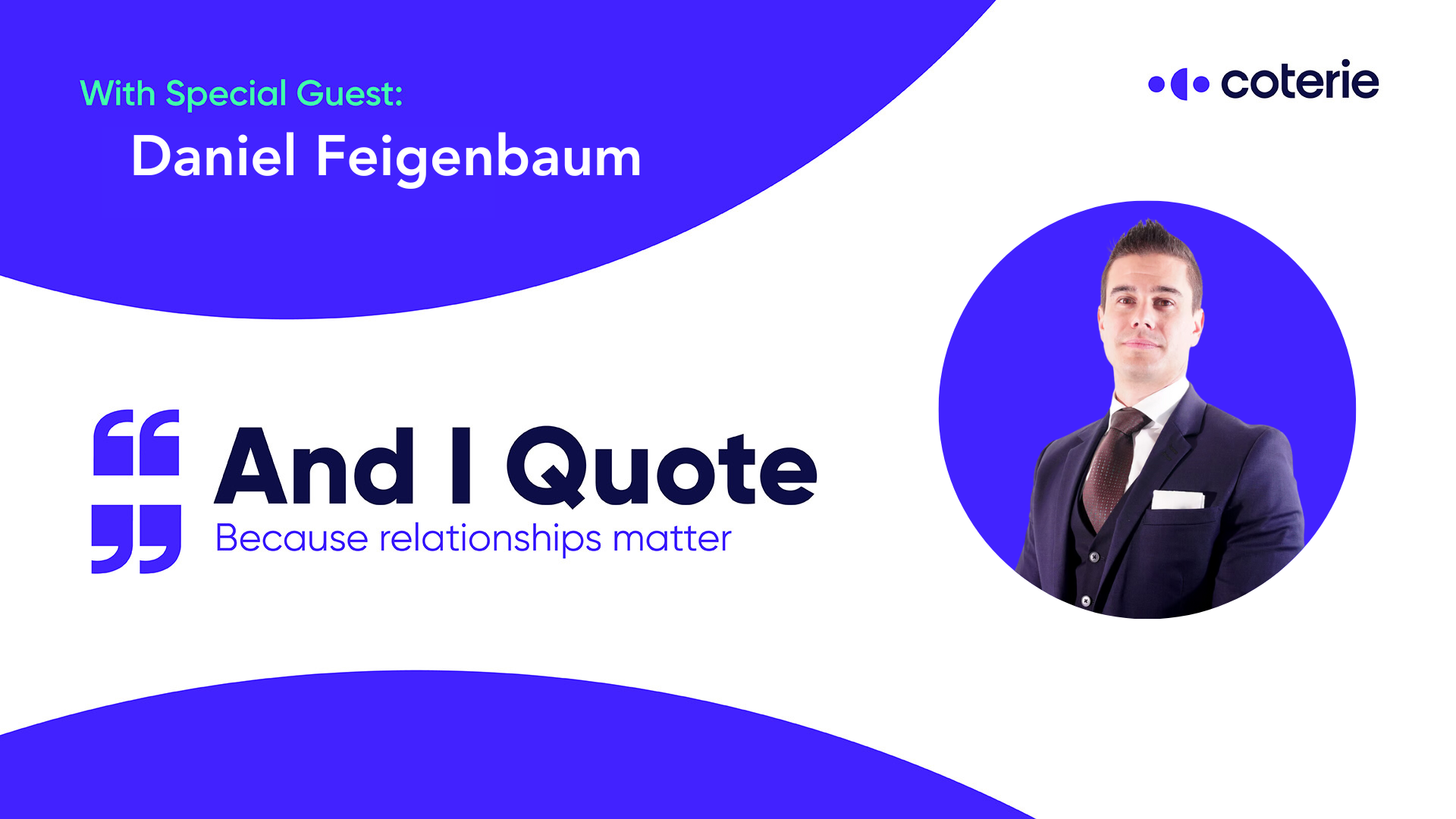Generating leads is a challenge for any insurance agency. Technology has introduced new and effective approaches to generating and converting leads. By making use of proven digital marketing tips, your insurance agency can increase its customer base and keep its revenue stream in the black
Direct mail, cold calls, and information booths all have their place in any multi-pronged marketing strategy. But without adopting some form of digital marketing for your insurance agency, you’re missing out on a viable and innovative means of growing your business.
Successful implementation of digital marketing strategies has a significant positive impact on an agency’s growth. A 2022 State of Digital in Independent Insurance agencies report compiled by Agent for the Future found that highly digital agencies grow, on average, 70% faster than other agencies.
The following 7 digital marketing tips for your insurance agency can help you reap the benefits of a more modern and tech-based approach to growing your agency.
1. Develop your content strategy
Content is material produced and published by your agency to share some sort of information with your audience. Content is the foundation of a digital marketing strategy, and includes blog posts, newsletters, videos, whitepapers, and case studies.
A breadth of high-quality content allows your agency to answer your customers’ questions, highlight your goals and vision, and relate to your audience. As a result, a thoughtful and valuable content strategy serves a variety of benefits, such as:
- Producing shareable content to post to social media
- Increasing brand awareness
- Establishing your agency’s credibility and trustworthiness
- Generating and converting leads
- Improving your website’s SEO
A good content strategy is also evergreen. After an initial investment, you can break down, repurpose, and otherwise build upon what you’ve already published. A video can form the foundation of a blog. A blog can be broken down into bite-size social media posts. A series of blog posts can be transformed into an ebook.
Content should also include a call-to-action, or CTA, to lead the consumer further through the sales funnel. An alluring CTA, combined with the information and value offered via your content, may be all the push a consumer needs to purchase a policy from your insurance agency — or at least convert into a lead.
2. Invest in Search Engine Optimization (SEO)
Consistent high-quality content improves your website’s search engine optimization or SEO. SEO is made up of two components: on-page SEO and off-page SEO.
On-page SEO includes the elements of SEO present on a specific web page, such as:
- Keywords
- Content (including the quality, length, depth, and relevancy of content)
- User-friendliness (site speed, ease of navigation, page layout)
- Internal and external links
- Page metadata (information used by search engines to describe what a page is about)
Where on-page SEO can be implemented as you go, off-page SEO requires a more long-term effort. Off-page SEO refers to actions that take place outside of your website, such as linking back to your content from another authoritative site and organic sharing of your content on social media.
By publishing valuable and useful content with strong on-page SEO, consumers and other websites are more likely to link back to your content, improving your off-page SEO.
Altogether, investing in SEO best practices tells search engines to rank your website higher on their search engine result pages, or SERPs, increasing traffic to your site based on its higher authority — and giving your agency the opportunity to convert that traffic into leads and sales.
3. Create a lead magnet
A lead magnet is a product or service given to someone for free in exchange for their contact details. In some cases, lead magnets serve as content upgrades — because they build upon the topic you’re covering — or gated content — because they require a consumer’s contact information before becoming accessible.
Lead magnets come in the form of:
- Ebooks
- Videos and webinars
- Checklists
- Guides
- Case studies
- Cheatsheets
- Quizzes, surveys, and assessments
- Consultations
Any lead magnet you create needs to offer some value to the would-be lead. It should solve a problem, deliver specific information, and demonstrate your agency’s expertise.
In other words, it’s not enough that a lead magnet is part of your digital marketing strategy: it needs to have purpose beyond merely advertising your agency.
The best lead magnet isn’t one-size-fits-all. Before producing one, consider your agency’s target market and the type of content you’re publishing.
For example, if you’re marketing to startups or new small businesses, a checklist along the lines of “12 Steps to Take Before Starting a New Business” may make sense to include in a blog post about small business insurance.
4. Maintain an active social media presence
Social media is an incredibly effective channel for marketing your insurance agency. As of 2023, 90% of Americans had social media accounts and 78% Of consumers buy from companies that provide a positive social media experience.
Social media interactions with brands shorten the consumer journey and directly influence purchase decisions.
It’s also a viable way of improving your website’s off-page SEO. Sharing and resharing content across social media expands its distribution, increases the awareness and credibility of your agency, and drives increased traffic to your site. Learn more about using LinkedIn to grow your business.
5. Share social proof
As far as digital marketing tips go, sharing social proof, such as testimonials and case studies, shows your target audience that others are buying and satisfied with your products or services. Sharing social proof demonstrates evidence that your offerings are a) wanted, b) used, c) fulfilling a need, and d) functioning as desired.
Think about how often you search through customer reviews before buying a new product. If 90 percent of buyers are happy with the product, you’ll probably buy it yourself and, in all likelihood, be similarly satisfied with the purchase.
The same is true when sharing your insurance agency’s social proof.
Ask your existing customers to share their thoughts and feedback with you, then proudly display their positive testimonials on your website and social media.
Consider, too, a case study for a particularly interesting situation. How did your agency save a customer money following a covered event? How does your agency make it easy for gig workers to apply for same-day coverage (and why does that matter)?
Awards, certifications, and partnerships also serve as social proof. If your insurance agency is recognized for its successes and values, customers have all the more reason to trust in your services.
6. Provide value through unique thought leadership content
Thought leadership relies on your expertise, credibility, and talents to provide unique and actionable advice and guidance. Blogs, videos, webinars, and other pieces of content may serve as thought leadership pieces — what matters most are the insights you share with your audience.
Thought leadership is a top priority for 66 percent of marketers, and for good reason. The 2021 Edelman-LinkedIn B2B Thought Leadership Impact Study found that:
- 60% of buyers say thought leadership builds credibility when entering a new category where the brand is not already known.
- 57% of buyers say that thought leadership builds awareness for a new or little-known brand.
- 53% of buyers say it’s important for new and small companies to produce thought leadership if they want buyers to consider working with them.
As with other aspects of your digital marketing strategy, it’s important that any thought leadership content you publish serves a purpose and presents genuine value. The same Edelman-Linked study warns against the risk of publishing thought leadership content that fails to provide unique insights or relevancy to your customers’ needs.
What can thought leadership look like for your insurance agency? Consider something along the lines of sharing your expertise in a given subject area and how it connects to your agency’s processes, or exploring ideas about how you perceive and measure risk.
7. Build a scalable process to quote and issue insurance policies
You’re familiar with many of the rebuttals and objections customers have when it comes to buying a policy from your insurance agency. By acknowledging those pain points, you can implement processes, systems, and tools to overcome and negate those objections.
In times past (and in many present situations), buying an insurance policy was a long and arduous process. It made an already boring and often frustrating experience that much more of a drag and could actively get in the way of what a customer needed and wanted at that exact moment.
By partnering with companies like Coterie, you can implement tools designed to simplify the quoting and binding process, making it quick and easy for your customers to purchase and manage their insurance policies.
Scalable and seamless processes enable you to get past many of the downsides that make purchasing insurance such a hassle. In turn, you can advertise the ease of buying a policy through your agency, the world-class customer support you offer, and your expansive appetite for underserved businesses and professionals.
Marketing your insurance agency is a marathon, not a sprint
Though digital marketing is a powerful solution to drive your agency’s growth, it won’t lead to overnight results. The best digital marketing for your insurance agency requires time, planning, and investment.
In the same vein, don’t inundate your website and social media channels with low-quality, rapidly produced drivel. Digital marketing is very much a quality over quantity game. Prioritize your strategy toward addressing your customers’ needs at every juncture.
Start by putting a digital marketing plan into place based on these digital marketing tips. Then, invest in quality content and lead magnets, on- and off-page SEO, and maintaining an active social media presence. By continually providing valuable information and services to your customer base, your agency’s digital marketing strategy will begin to pay off.





